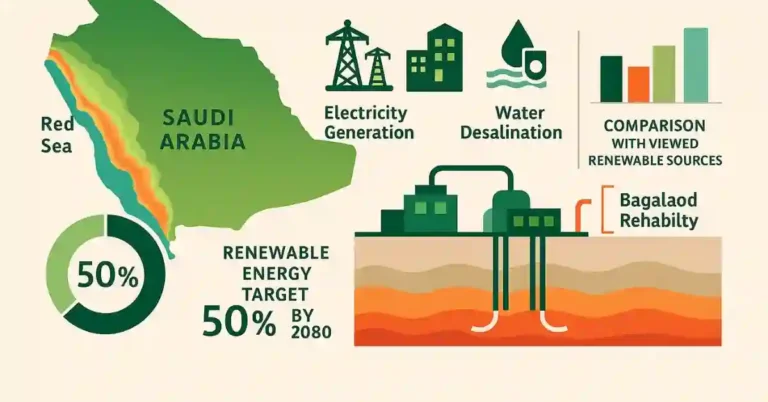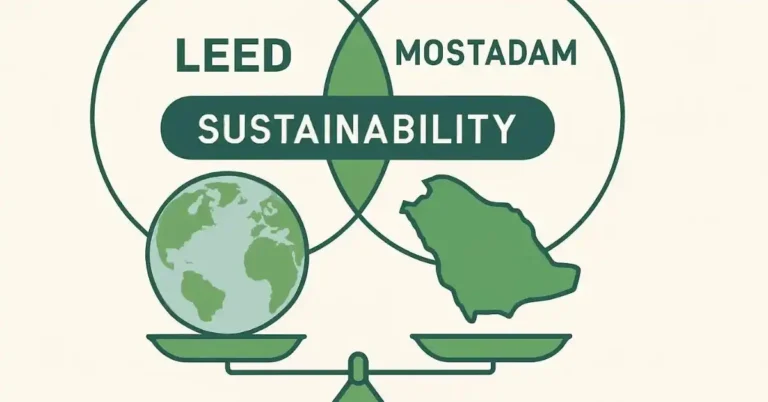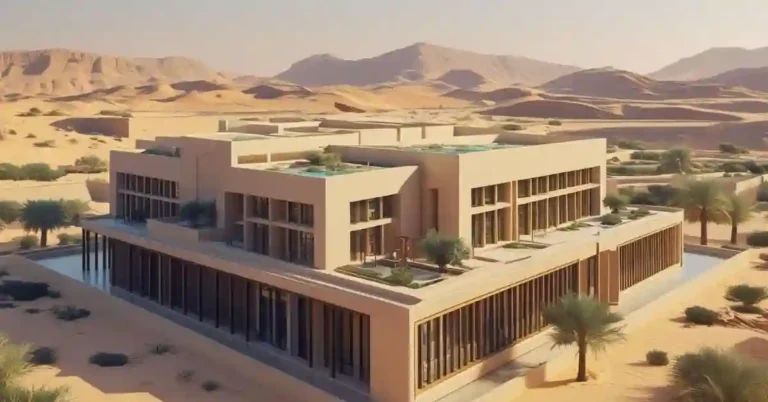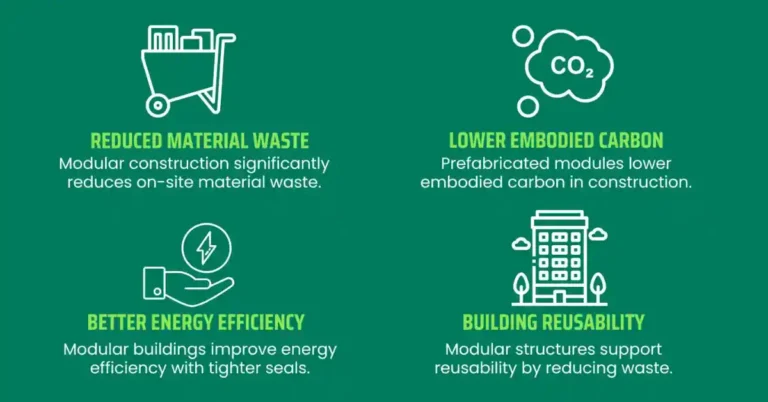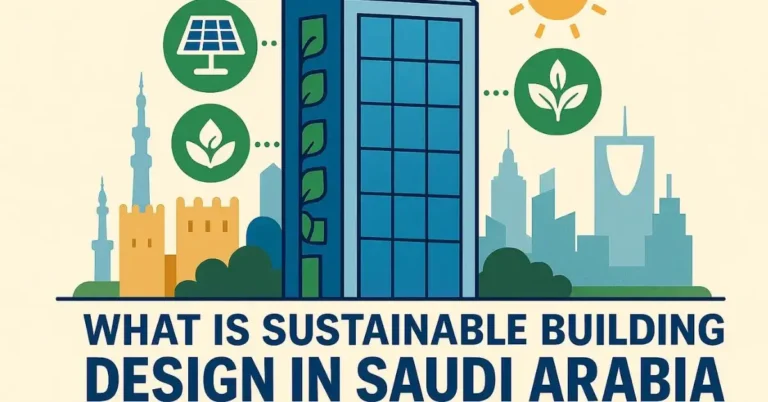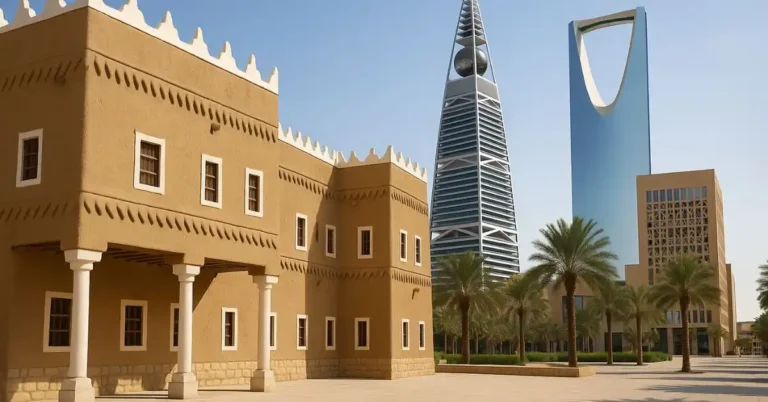Sustainable Cooling Solutions for Arid Climates
Saudi Arabia is known for its hot and Sustainable Cooling Solutions, with average temperatures regularly exceeding 104°F (40°C) during the summer months. With about 90% of its land area being desert and temperatures rising each year due to climate change, the demand for cooling solutions has increased tremendously in the country.
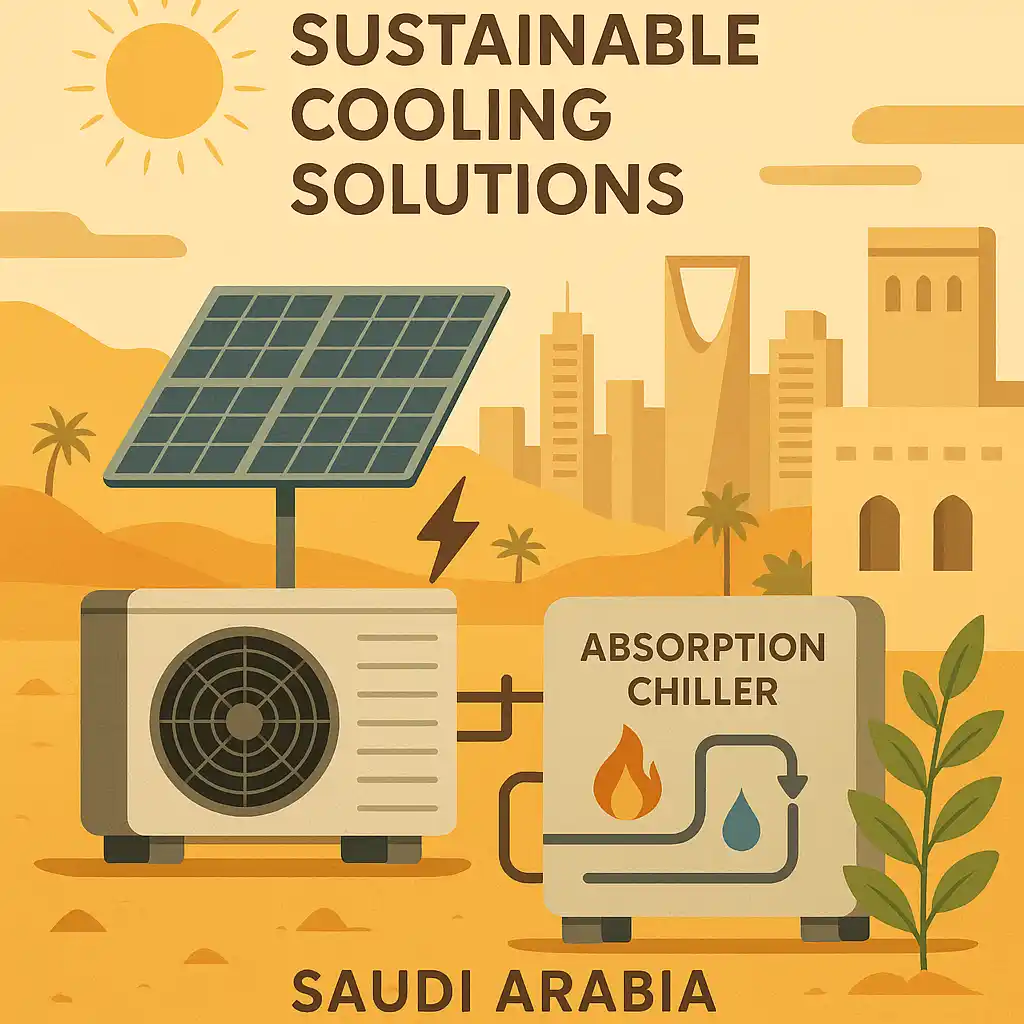
As a result, the use of traditional air conditioning systems has also increased, leading to a significant increase in energy consumption and carbon emissions. However, the future of HVAC (heating, ventilation, and air conditioning) in Saudi Arabia is rapidly changing as the country seeks to shift towards more sustainable and environmentally-friendly cooling solutions.
With the goal of reducing its carbon footprint and preserving its natural resources, Saudi Arabia is investing in innovative technologies to provide efficient and sustainable cooling solutions for its arid climate.
The Growing Need for Sustainable Cooling Solutions
Saudi Arabia is one of the world’s largest consumers of energy, with a significant portion of its energy consumption dedicated to cooling. The country’s hot and dry climate makes air conditioning a necessity, especially during the summer when temperatures can reach up to 122°F (50°C). As a result, the demand for cooling solutions has only increased in recent years, putting a strain on the country’s energy resources and contributing to its carbon emissions.
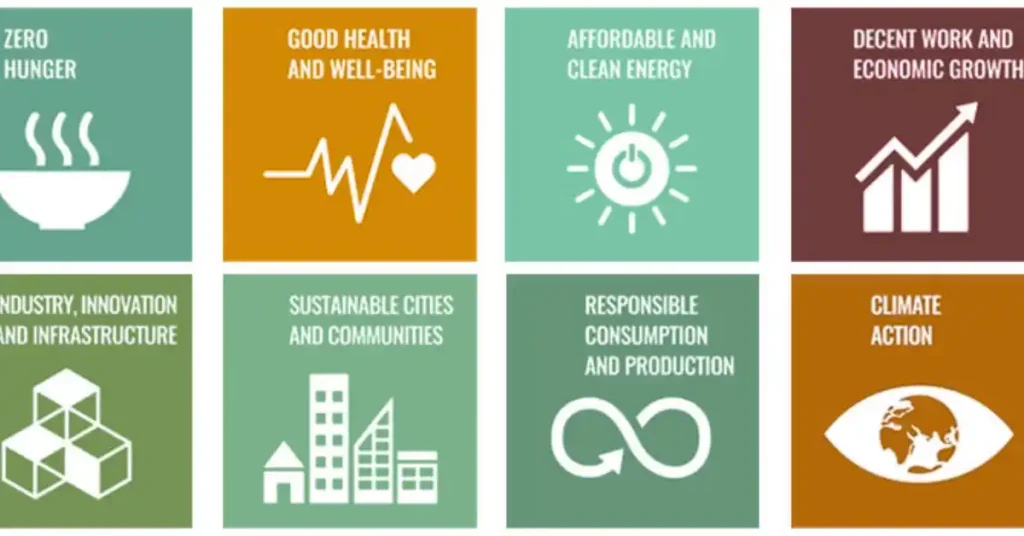
To combat this issue, the Saudi government has set ambitious targets to increase the country’s reliance on renewable energy sources and reduce its carbon emissions. As a part of the National Renewable Energy Program, the country aims to generate 50% of its energy from renewable sources by 2030. To achieve this goal, sustainable cooling solutions are being prioritized.
The Role of Solar Energy in Sustainable Cooling Solutions
Solar energy is one of the most promising sustainable energy sources for Saudi Arabia, given its abundance of sunlight throughout the year. As a result, the country has invested heavily in solar technologies, particularly in the field of cooling.
One of the most prominent examples is the world’s largest district cooling plant in Mecca, which uses solar energy to power its cooling systems. This plant, which serves both residential and commercial buildings, is a key part of Saudi Arabia’s vision to reduce energy consumption and greenhouse gas emissions.
Other innovative projects, such as the King Abdullah University of Science and Technology’s (KAUST) Solar Village, are also exploring the use of solar energy in cooling buildings and homes. The village consists of 40 homes equipped with solar thermal collectors that provide a sustainable and cost-effective solution for cooling.
These homes utilize energy-efficient technologies that not only reduce the dependency on conventional cooling systems but also provide a significant reduction in energy bills. The success of these projects has the potential to pave the way for more widespread adoption of solar-powered cooling across the kingdom.
Additionally, Saudi Arabia’s solar energy market is rapidly expanding with numerous projects in the pipeline, including large-scale solar farms and innovative applications in air conditioning systems. These initiatives aim to complement the growing demand for cooling while simultaneously addressing environmental concerns and the country’s long-term sustainability goals.
By harnessing solar energy, Saudi Arabia is not only enhancing its energy security but also taking significant steps towards achieving a more sustainable and low-carbon future. With ongoing investments and technological advancements, solar-powered cooling is expected to play an increasingly important role in the kingdom’s energy mix in the coming decades.
The Emergence of Green Buildings
Another important step towards sustainable cooling in Saudi Arabia is the development of green buildings. These are structures that incorporate sustainable design elements to reduce their energy consumption and environmental impact significantly. One of the leading examples is The King Abdullah Petroleum Studies and Research Center, which has achieved LEED Platinum certification for its energy-efficient design and implementation of sustainable technologies, including advanced cooling systems.
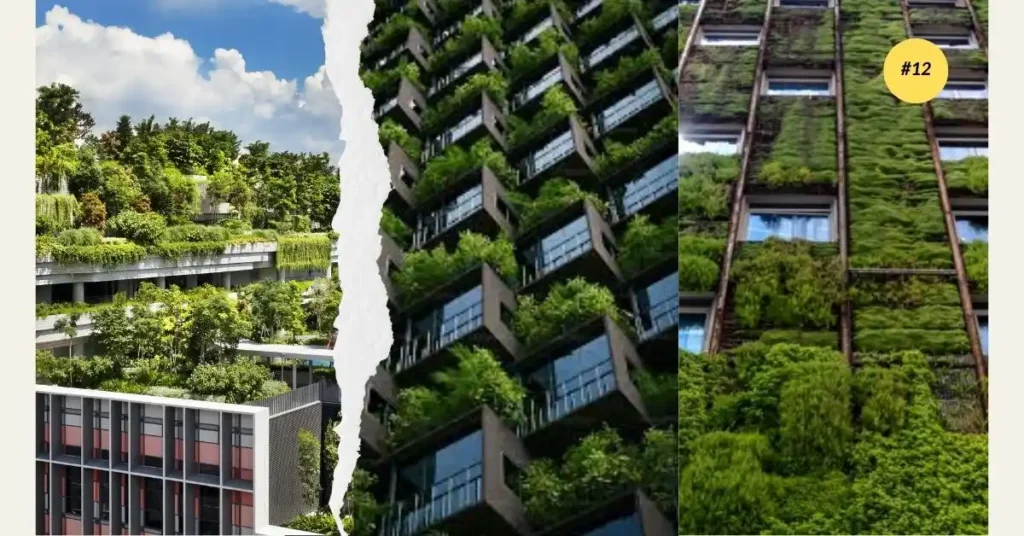
The government of Saudi Arabia has also implemented regulations to encourage the construction of green buildings, such as the Green Building Code launched in 2018. This code aims to reduce energy and water consumption in buildings, including their cooling systems, by promoting the use of sustainable materials and renewable energy sources.
Innovative Cooling Technologies for Arid Climates
In addition to solar-powered cooling systems and green buildings, technology plays a crucial role in providing sustainable cooling solutions for arid climates in Saudi Arabia. Some of the latest innovations in this field include:
1. Energy-efficient Air Conditioning Systems
As the demand for cooling continues to rise in Saudi Arabia due to extreme temperatures and rapid urbanization, there is an increasing need for more energy-efficient air conditioning systems. The latest technologies, such as Variable Refrigerant Flow (VRF) systems, have emerged as a promising solution.
These systems use significantly less energy than traditional air conditioning units and provide the added benefit of zoned cooling. This feature allows users to control the temperature in specific areas or rooms, ensuring that energy is used more efficiently by cooling only the areas that are in use.
In addition to energy savings, VRF systems are known for their flexibility and scalability, making them ideal for both residential and commercial applications. These systems can be integrated into new buildings or retrofitted into existing structures with minimal disruption.
VRF systems are also quieter and more environmentally friendly, as they produce fewer emissions compared to conventional systems. Furthermore, Saudi Arabia is increasingly adopting smart cooling solutions that integrate VRF technology with building management systems (BMS).
This integration enables real-time monitoring and optimization of energy consumption, further reducing electricity bills and contributing to overall sustainability. These systems also have the ability to adjust cooling output based on factors such as occupancy and time of day, making them even more energy-efficient.
2. Thermal Storage Systems
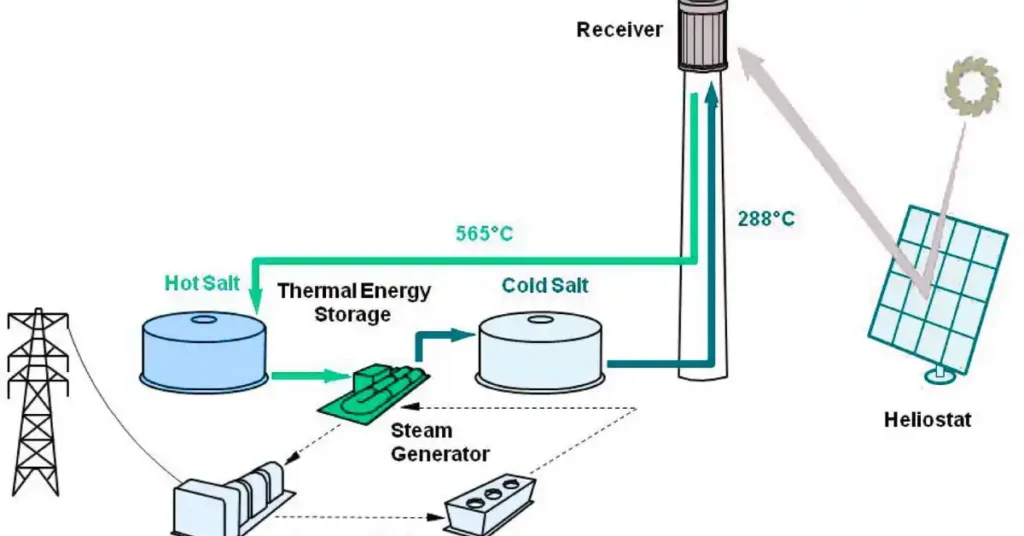
Thermal storage systems use ice or chilled water to store energy, which can then be used during peak demand periods. These systems are especially useful in arid climates, as they can provide consistent cooling even during power outages or when there is a high demand for energy.
3. Evaporative Cooling Technologies
Evaporative cooling is a highly energy-efficient alternative to traditional air conditioning systems. It uses water evaporation to cool the air, eliminating the need for compressors and refrigerants, thus reducing energy consumption and carbon emissions.
In Conclusion
The future of HVAC in Saudi Arabia is gradually shifting towards more sustainable and environmentally-friendly cooling solutions. With the government’s focus on renewable energy and green initiatives, and the use of innovative technologies, the country is well on its way to achieving its targets of reducing energy consumption and carbon emissions. It is essential to continue investing in and implementing sustainable cooling solutions to ensure a better future for Saudi Arabia’s arid climate and the planet as a whole.
FAQs
Q: What are sustainable cooling solutions in Saudi Arabia?
A: Sustainable cooling solutions refer to energy-efficient technologies and strategies used to provide cooling while minimizing energy consumption, reducing greenhouse gas emissions, and utilizing renewable resources, like solar energy.
Q: Why is sustainable cooling necessary in Saudi Arabia?
A: Due to the extreme heat and frequent temperatures exceeding 40°C, traditional cooling methods increase energy demand, contributing to higher carbon emissions. Sustainable cooling addresses these issues while conserving resources.
Q: How do absorption chillers work in sustainable cooling?
A: Absorption chillers use heat instead of electricity to cool a space. In Saudi Arabia, they are often powered by solar energy, making them an environmentally-friendly alternative to traditional air conditioning systems.
Q: Can sustainable cooling solutions save costs in the long run?
A: Yes, although the initial investment may be higher, sustainable cooling solutions reduce energy bills over time by using less electricity and relying on renewable energy sources like solar power.
Q: What are the environmental benefits of using thermal storage systems in cooling?
A: Thermal storage systems store cooling energy during off-peak hours and release it during peak heat periods. This reduces the demand on the grid, lowers energy costs, and minimizes environmental impact by using off-peak, cleaner energy.
Q: How can evaporative cooling systems be integrated into existing buildings?
A: Evaporative cooling systems can be added to existing building systems through retrofitting. They work best in dry climates, like Saudi Arabia, by using water to cool the air without relying heavily on electricity.
Q: How do green roofs contribute to sustainable cooling?
A: Green roofs, covered with vegetation, help reduce the heat island effect, lower indoor temperatures, and improve insulation, thus reducing the need for artificial cooling.
Q: What role does energy storage play in sustainable cooling solutions?
A: Energy storage systems allow excess renewable energy, such as solar power, to be stored and used later for cooling, reducing reliance on the grid and enhancing the effectiveness of sustainable cooling methods.
Q: What are the key challenges in adopting sustainable cooling solutions?
A: Key challenges include high upfront costs, lack of awareness, and the need for proper infrastructure to support new cooling technologies, as well as the need for skilled professionals to install and maintain these systems.
Q: How does the Saudi government support sustainable cooling initiatives?
A: The Saudi government has introduced initiatives like the Saudi Green Initiative, funding for renewable energy projects, and the development of policies promoting energy efficiency and sustainable cooling technologies in the country.
